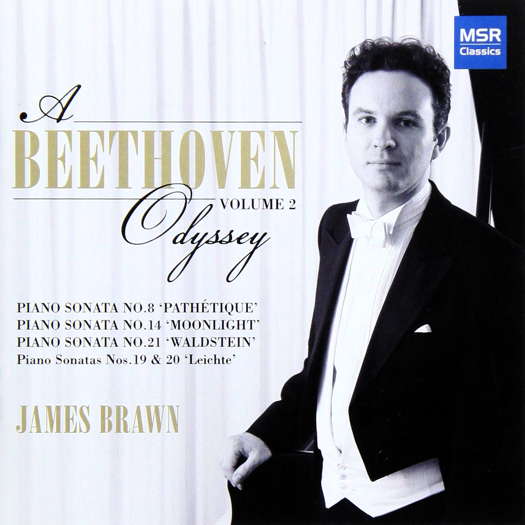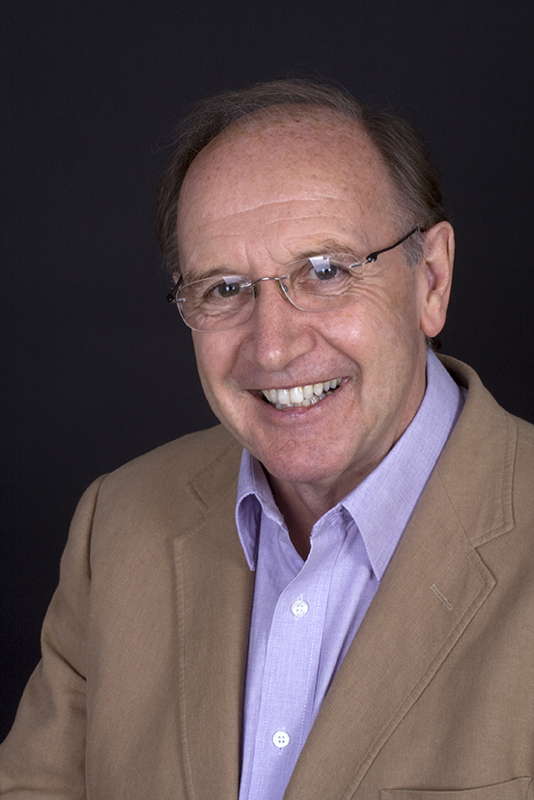 SPONSORED: CD Spotlight. Perfect Indeed - More Beethoven from James Brawn, recommended by Andrew Schartmann.
SPONSORED: CD Spotlight. Perfect Indeed - More Beethoven from James Brawn, recommended by Andrew Schartmann.
All sponsored features >>
 UPDATES: There's a new feature every day at Classical Music Daily. Read about the various ways we can keep in touch with you about what's happening here.
UPDATES: There's a new feature every day at Classical Music Daily. Read about the various ways we can keep in touch with you about what's happening here.
- Sparrow Sound Design
- harmonia mundi musique sas
- Gottlieb Muffat
- Arvo Pärt
- Grigory Samuilovich Frid
- Esa-Pekka Salonen
- Khayyam Mirzazade
- Manchester University
Roy Wales
'Roy influenced so many people - he was a catalyst for so much. A dear, dear person with an extraordinary life force! So many have been touched by Roy’s gifts, inspiration, humour and kindness.' - Emily Cox, Brisbane Chorale
'I have just finished your book Roy and am exhausted at the thought of what you have achieved in your lifetime. It’s truly amazing! What would you have thought if someone had told you how your life would pan out when a young boy in Guernsey? All the thousands of people like me who have been privileged to work with you and share your enthusiasm for singing, I can't thank you enough.' - Judi Gornall, London Student Chorale / English Concert Singers
British conductor, entrepreneur and innovator Roy Wales was born in Guernsey in the Channel Islands on 9 November 1940 during the German occupation. His earliest musical experiences were with the Salvation Army, and he played the euphonium as a boy. Roy was offered a Ministry of Education Scholarship to attend Trinity College of Music in 1961. He formed his first choir, The London Student Singers in early 1963, at the age of twenty-two.
In 1964 Roy took his choir The London Student Chorale to Istanbul to sing in an International Student Festival and in 1965 the choir won first prize at the Montreux International Choral Festival. Roy attended George Hurst's conducting course at Canford School that year, studying alongside John Eliot Gardiner and Andrew Davis who were fellow participants.
Roy also formed the Camden Opera Group in 1965 and gave the first London performance of Aaron Copland's folk opera The Tender Land. In 1966, he promoted and conducted the first London performance of Leonard Bernstein's Chichester Psalms at the Royal Academy of Music.
In 1967, just before conducting a performance of the Brahms Requiem at St Clement Danes Church in London, Roy was introduced to Christine Galer by members of the choir committee who persuaded him to break all his and the choir's rules and let her take part in the concert, despite having attended no rehearsals. Two years later, they were married!
Between 1968-1973 Roy was Music Adviser for the County Borough of Southend-on-Sea. During his time in Essex he created a Southend Music School for young musicians and established the Southend Youth Orchestra. He also formed the Southend Festival Chorus whose first concerts, in collaboration with the London Student Chorale, were performances of Britten's War Requiem and Tippett's A Child of our Time in Southend and at the Royal Albert Hall, London.
In 1972, his London Student Chorale was invited to represent the UK at the International University Choir Festival at the Lincoln Centre in New York. During this trip, Roy was invited to study for a Masters in Choral Conducting at the University of Washington in Seattle, as a Fulbright Scholar. Roy was eventually awarded a Doctor of Musical Arts degree, studied for over a number of years and awarded in 1980.
In 1973 he was asked to prepare a chorus for a Gilbert & Sullivan concert promoted by Raymond Gubbay, which marked the beginning of a fifty-year professional arrangement of providing choirs for Raymond Gubbay performances.
In 1974 Roy became the second Director of Music for the University of Warwick, coinciding with the completion of the new Arts Centre. The official opening was attended by Leonard Bernstein and Michael Tippett, both receiving honorary degrees, and Roy conducted Chichester Psalms in the presence of Bernstein. Following this performance and meeting, Roy asked for Bernstein's permission to present the first UK performance of his Mass in 1976, and Bernstein personally agreed. The first performances were held in Coventry and then at the Royal Albert Hall in May 1976.
In 1981, Roy became Director of the Queensland Conservatorium of Music in Brisbane, Australia, and during his tenure he instigated a great deal of expansion including: appointing distinguished performers and teachers from around the world, forming new ensembles and introducing new courses such as Music Technology and Jazz, introducing a post-graduate opera course, forming The Conservatorium Singers and touring with them to Europe and Japan. He also established the Conservatorium Music School for children and ran vacation courses for the community. He formed a large new chorus, The Brisbane Chorale, with the aim of performing challenging works, which continues to thrive to this day. He conducted the first Australian performance of Bernstein's Mass in 1986.
Upon returning to the UK, he headed what is now the Royal Birmingham Conservatoire, founded the Bournemouth International Festival, re-established the Summer Schools instigated by Ernest Reid at Queenswood School and led the East Sussex Music Service. After his retirement, he focused on creating festivals and concerts for choral singers. He visited Sierra Leone, Nigeria and Ghana many times for workshops and concerts with the Ghana National Symphony Orchestra, in collaboration with The British Council.
In 1989 he formed the English Concert Singers, composed of singers dating back to the time of the London Student Chorale but also incorporating others who had sung in choirs he had formed and led. With this choir and its extension, the English Concert Chorus, there were major concerts in Birmingham Town Hall, cathedrals in many parts of the country, the Royal Albert Hall and Royal Festival Hall, among others, and tours to all parts of the globe, including China, South Africa, Australia and South America.
Roy worked closely with many composers during his lifetime, commissioning and performing first performances of pieces by British composer Paul Patterson over many decades and championing the works of Czech composer Antonín Tučapsky. He also established a musical partnership with the Hungarian Mendelssohn Chamber Orchestra and violinist Péter Kováts in Vesprém, arranging many cultural exchanges for orchestra players and singers.
In 2003 he founded the Cornwall International Male Voice Choir Festival, celebrating male singing in that county and this has continued to grow to become the largest such Choir Festival globally, attracting choirs from all over the world.
Roy and Christine moved to the village of Rottingdean in 1994. Having formed Rottingdean Arts, Roy created a year-round music programme of festivals and concerts for the community, drawing on his many contacts in the music profession. He also briefly became a Parish Councillor and during his tenure galvanised the community into raising the necessary money to enable the restoration of the neglected terraces on the seafront, creating the Rottingdean Terraces Stage where free concerts continue to be promoted by Rottingdean Arts for the benefit of residents and visitors.

Roy Wales (1940-2024).
Photo © 2008 Fotograffics
Roy wrote and published his memoir My Musical Journey in 2019 and was awarded the British Empire Medal in the Queen's 2020 New Year's Honours List for Services to Choral Music.
Roy Wales died on 12 February 2024 aged eighty-three from squamous cell skin cancer. Throughout his life he created musical opportunities and memories for thousands of people internationally. He is survived by his wife, Christine, son Simon, daughter Anna and four grandchildren.

